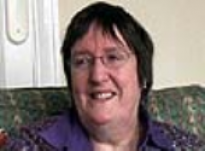Ann - Interview 2

More about me...
Ann went for a routine mammogram in December 2005 and had been for two before this one. She was not worried when she was recalled because she didn’t think there would be anything wrong. She was given several tests and found having a biopsy frightening. She was shocked when told she had DCIS because she’d had no symptoms, and very shocked to hear that she would need a mastectomy. She had not suspected any problems and a mastectomy seemed very drastic treatment. She was also offered breast reconstruction, which would be done at the same time as the mastectomy. Ann felt that she had no choice about having a mastectomy and found this very difficult to accept. She wanted to know more about why a mastectomy was needed and felt concerned when, after surgery, less DCIS was found than doctors first suspected.
Ann said she received a lot of support from her husband, sister and colleagues, though also felt that she would have liked to talk to other women in the same situation.
Ann was interviewed for the Healthtalkonline website in 2008.
Ann wanted more information from doctors and felt asking questions was important.
Ann wanted more information from doctors and felt asking questions was important.
Ann fainted when doctors told her she'd need a mastectomy. She'd expected nothing to be wrong and was extremely shocked.
Ann fainted when doctors told her she'd need a mastectomy. She'd expected nothing to be wrong and was extremely shocked.
Ann has had a lot of pain and discomfort since her reconstruction. She had a tendon cut to ease the pain and will be having a nerve cut soon.
Ann has had a lot of pain and discomfort since her reconstruction. She had a tendon cut to ease the pain and will be having a nerve cut soon.
Ann wanted to talk to other women who were at the same stage as her and trying to make decisions about treatment.
Ann wanted to talk to other women who were at the same stage as her and trying to make decisions about treatment.
Ann wondered if she'd had symptoms but had pushed them to the back of her mind. She thought she'd have a lump if there was anything wrong.
Ann wondered if she'd had symptoms but had pushed them to the back of her mind. She thought she'd have a lump if there was anything wrong.
Ann felt uncomfortable and vulnerable having a biopsy. Having her husband with her helped.
Ann felt uncomfortable and vulnerable having a biopsy. Having her husband with her helped.
Ann sometimes wonders if she really needed a mastectomy. She tells herself there's no point in thinking like that now and is happy with her reconstruction.
Ann sometimes wonders if she really needed a mastectomy. She tells herself there's no point in thinking like that now and is happy with her reconstruction.
Right from the start?

